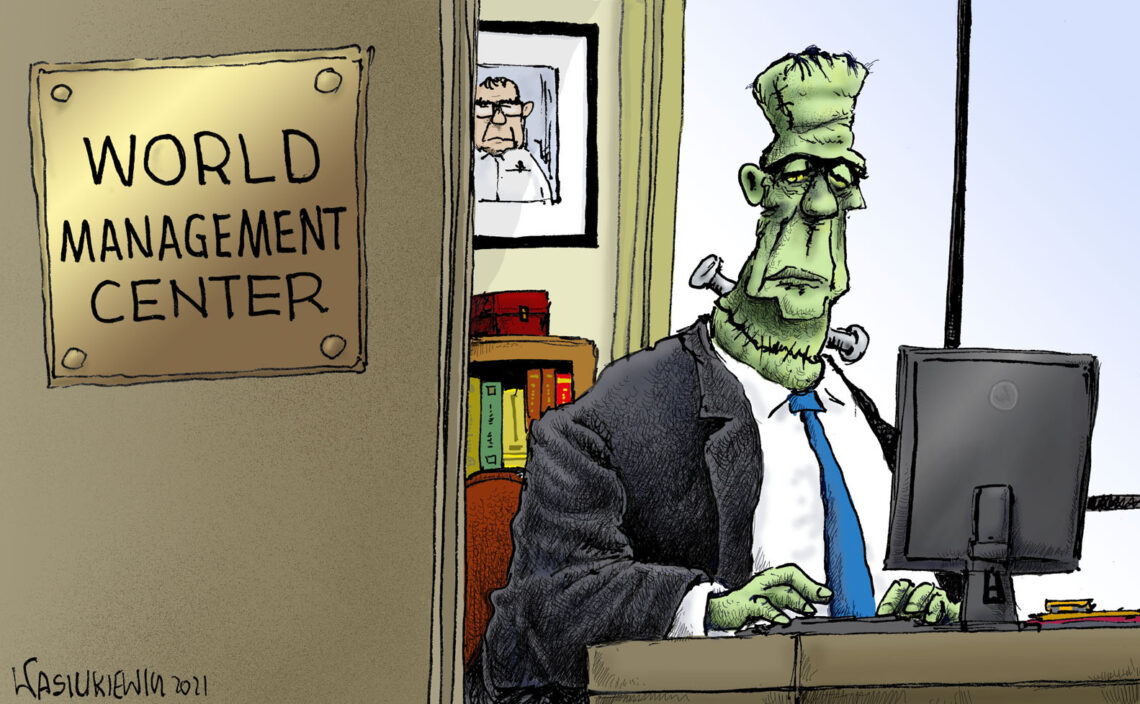Supranational organizations and accountability
As several recent controversies have shown, supranational organizations are not above wrongdoing. Many such institutions were originally created with laudable intentions but have now begun looking for new spheres of activity – often causing harm in doing so.

Following an inquiry, the head of the International Monetary Fund (IMF) Kristalina Georgieva was accused of having rigged data in favor of China during her time as chief executive of the World Bank. She was severely criticized by United States Treasury Secretary Janet Yellen, but after long deliberations, Ms. Georgieva was allowed to keep her position by the IMF board.
This controversy highlights the need to reflect on the present role and usefulness of major supranational organizations, including their official or hidden agendas.
It is necessary to ask, from time to time, whether supranational institutions are still fulfilling their purpose.
Supranational organizations like the World Bank, the IMF and the Organisation for Economic Co-operation and Development (OECD) were created with a certain legitimacy and purpose. But, as circumstances change, these mandates can become obsolete. Furthermore, such institutions have the tendency to grow excessively and become increasingly bureaucratic and technocratic. Without democratic accountability, there is always a danger that they will begin to look for new areas of activity. This can prove useful in some situations, but it can also become an end in itself. Sometimes institutions decide to redefine their original purposes and attempt to impose new rules and regulations on the international community. To do so, they allow large powers – today the bigger G20 countries – to use them in promoting their interests.
It is necessary to ask, from time to time, whether supranational institutions are still fulfilling their purpose, or whether they should be downsized or even abolished. In 1944, 45 countries gathered in Bretton Woods and established the postwar monetary system. The IMF and the World Bank were established. The World Bank was tasked with promoting development in member countries, while the IMF was charged with maintaining the balance of payment stability in a system of fixed exchange rates. For a long time, it was tacitly agreed that the IMF would be led by a European and the World Bank by an American.
After the collapse of the Bretton Woods system and the end of the regime of fixed exchange rates, the functions of these institutions became hazy. Bureaucracy grew and technocratic measures evolved, with dubious results. Their activities became similar, and their respective responsibilities are now ill-defined. During the Southeast Asian economic crisis, the bureaucratic measures imposed on the region by the IMF were clearly harmful. The intervention in the Greek debt crisis, along with that of the EU, was also damaging. While such institutions certainly produce useful research, their models and conclusions can sometimes be biased because of their technocratic structure.
It is unfortunate that organizations now use the national interests of larger countries to give themselves leverage.
China is increasingly influential in many supranational organizations, including the World Bank and the IMF. Many of these institutions have also drastically expanded their workforce. The OECD and the IMF employ some 2,500 and 2,400 people respectively, while the World Bank has over 10,000 employees.
The role of the OECD was meant to be somewhat different. It was also founded at the end of World War II to provide statistical data and help promote economic development and democratic systems. The institution should assist member countries, not set their agenda. But lately, the OECD has become a bureaucratic monster, developing policies and regulations mostly serving the G20, and then enforcing them on the entire world. Among its most detrimental activities is the creation of regulatory cartels, which expand administrative burdens to the detriment of healthy competition. Their push for tax harmonization clearly favors countries with high taxes, which further harms efficiency.
It is unfortunate that organizations now use the national interests of larger countries to give themselves leverage, becoming technocratic monsters without real accountability. There should be a mechanism to regularly assess their utility and, whenever necessary, determine if they should be streamlined or simply shut down.
